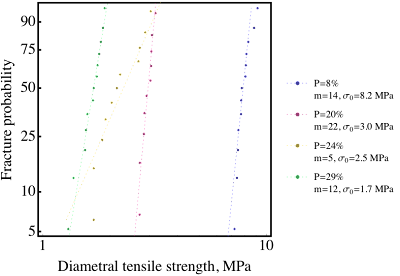
Research projects available with support up to 12$/hr
- Post by: siteadmin
- October 16, 2013
- Comments off
We are looking for Illinois Institute of Technology graduate and undergraduate students for MMAE project(s) with support up to 12$/hr. If you are interested, please send me an email.
Project: Reliability engineering of pharmaceutical tablets and pills
The support is up to 12.00$ per hour.
1 Graduate Research Project
1 Undergraduate Research Project
Women and minorities are strongly encouraged to apply.
Advisors: Professor Keith Bowman and Dr. Ozgur Keles (contact [email protected])
Interested students please send an email including an exactly one page description of your potential contribution to the project, skills and background, which will be helpful.
Pharmaceutical industry faces serious reliability/manufacturing problems due to increasing demand and new formulations. Despite housing some of the highest paying engineering jobs, a complete understanding of tablet strength is still not available. Accordingly, production of reliable tablets, i.e., tablets that have similar strength, becomes an elusive problem, which (a) affects elderly people, who want to break the tablet and get half-dose, (b) decreases shelf life of the final product, and (c) increases medicine prices due to (b) and redundant processing steps. Our project targets some of these problems based on both experimental and computational techniques.
Experiments will involve tablet production and mechanical testing in laboratories. Simulations will involve generating representative tablet microstructures and mechanical testing in computer/supercomputer.
Details of the project
Experimental part of the project focuses on understanding fracture statistics and fracture behavior of tablets. For fracture statistics, tablets will be produced by ready to use in house equipment and materials. Preliminary data on diametral tensile strength of cylindrical microcrystalline cellulose compacts (Avicel PH-102, nominal particle size of 100 μm) show that Weibull modulus changes with porosity, Figure 1. Accordingly, further diametral compression tests, which contain at least 50 specimens for each porosity level, are required to observe the effects of porosity on fracture statistics.
Another possibility is the observation of R-curve behavior of tablets using single edge notch bend test geometry, which is currently missing in the literature. As the compaction process results in plastic deformation of microcrystalline cellulose powders, which have aspect ratio of 1-3, bridging of these powders during fracture with plastic deformation is expected.
Finite element or discrete element method will be used to simulate fracture in tablets. Stress distributions of top and bottom surface microstructures of cylindrical tables can be simulated using FEM (2D linear-elastic) and can be related to fracture strength of tablets. Further extensions into non-linear fracture simulations are possible using FEM or DEM with either real 3D microstructures generated by X-ray computed tomography or computer generated synthetic microstructures.

Figure 1. Change in diametral tensile strength of Avicel PH-102 powder compacts with porosity, P.
Background Expected
Graduate Project: A BS degree in ME or MSE for MS Students
Undergraduate Project: At least Junior standing in MSE or ME, but must have completed at least one laboratory course in the MSE or ME curricula
Safety Training is Mandatory to use MMAE laboratories for Research
Recent Publications
Ozgur Keles, R. Edwin Garcia, and Keith J Bowman, “Deviations from Weibull Statistics in Brittle Porous Materials,” Volume 61, Issue 19, Acta Materialia, Pages 7207–7215, 2013.
Ozgur Keles, R. Edwin Garcia, and Keith J. Bowman, “Stochastic failure of isotropic, brittle materials with uniform porosity,” Volume 61, Issue 8, Acta Materialia, Pages 2853–2862, 2013.
Posted 16th October 2013 by Ozgur Keles